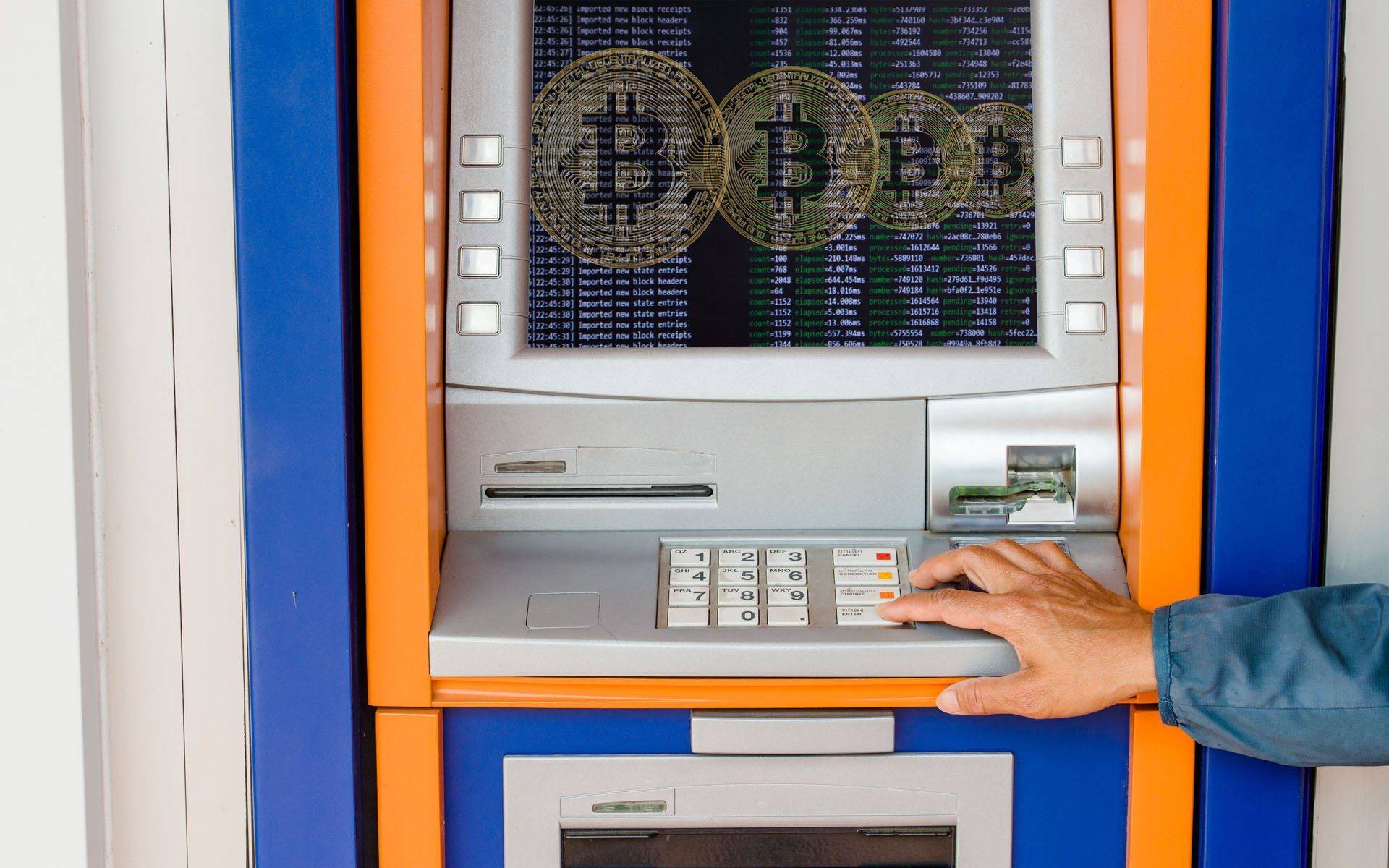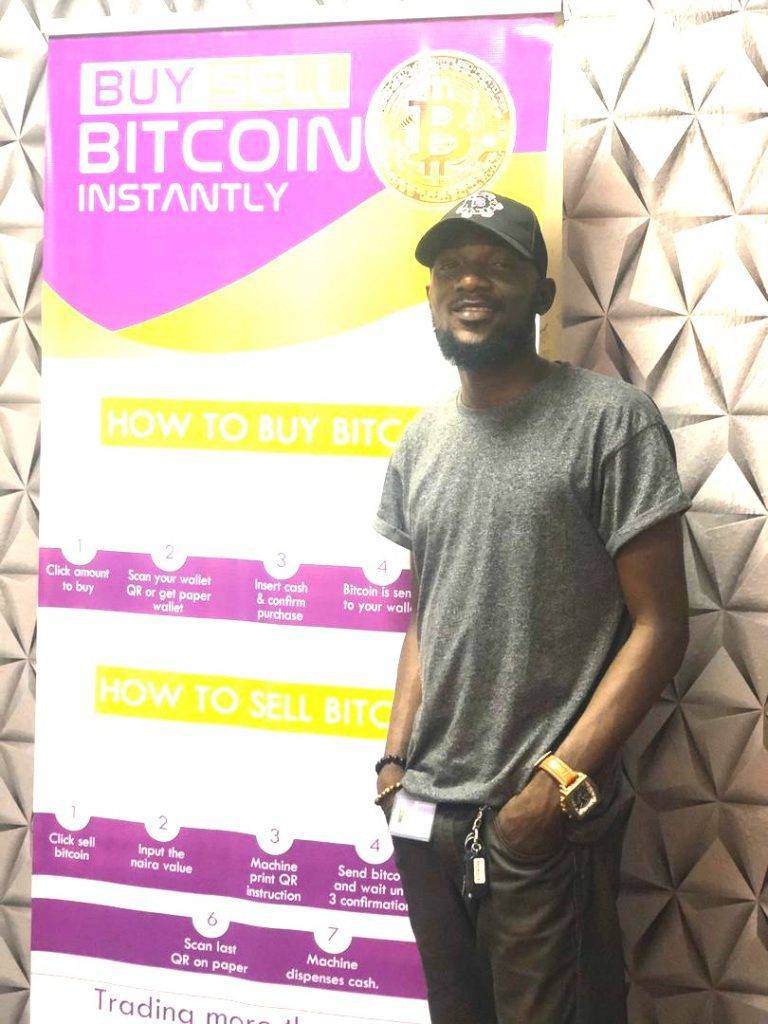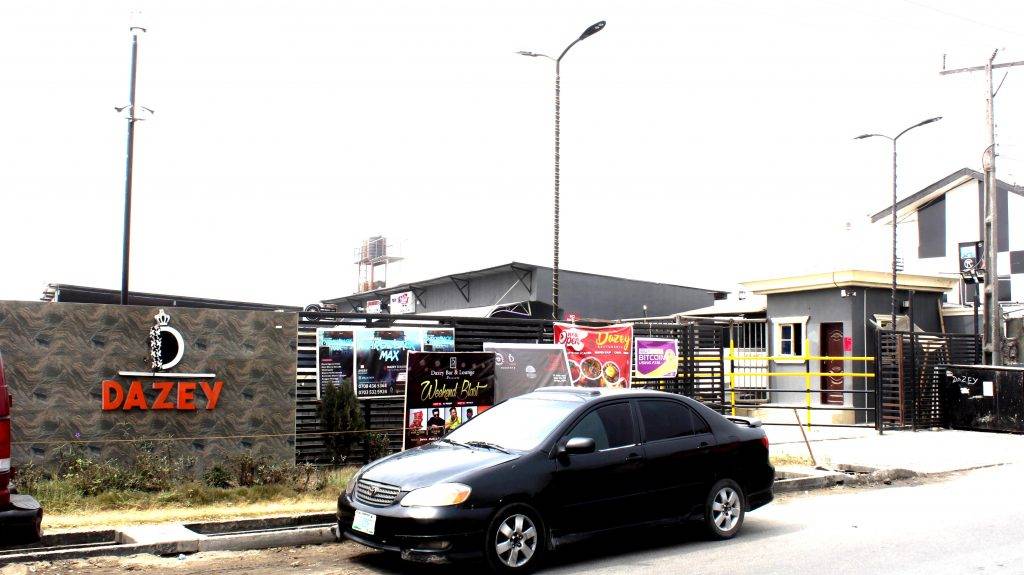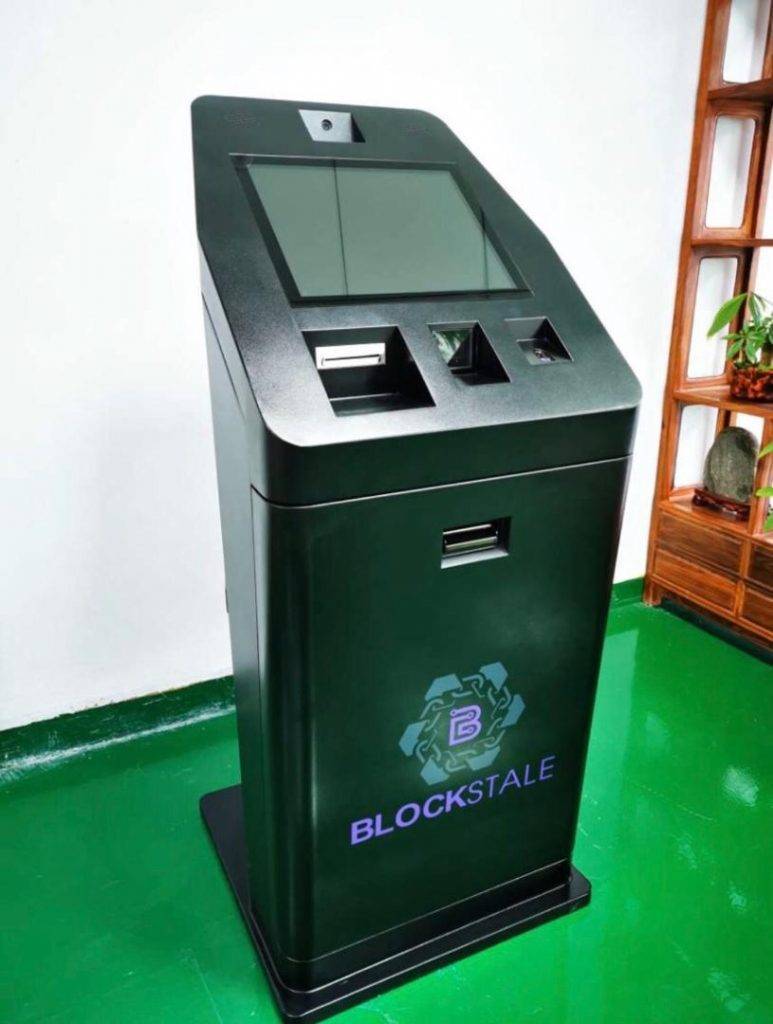Daniel Adekunle Designed And Flew In Nigeria’s First Bitcoin ATM From Shenzhen

At a hippy chill spot in one of the most popular areas on Lagos Island, there is an Automated Teller Machine (ATM) which seems a well-orchestrated business strategy. It’s pretty normal for a business like Dazey Lounge and Bar, Oke-Ira, Ajah, to have such a machine nearby just in case its customers need to withdraw cash to pay for services.
But, about a few meters away from this ATM lies something more sophisticated and unprecedented. Not everyone who walks past this establishment may take the Bitcoin ATM sign seriously, except they’re crypto investors or blockchain enthusiasts.
Inside a casino where young guys show what they’re made of in PlayStation 4 and where slot machines shimmer with colorful light, lies what’s unarguably the first BTM in Nigeria.
Outside the casino, Daniel Adekunle talks about his excitement to be the pioneer when it comes to Bitcoin ATMs in the country. But his excitement, according to him, is not enough reason to be so loud about the achievement. Which is why many people do not know yet that there’s a Bitcoin exchange machine enabling a vending business close to the Lagos Lagoon.
“Built For Africans”

Daniel Adekunle Omoshola (pictured above) is the founder and CEO of Blockstale – a firm focused on the principal development of blockchain technology through industry standard hardwares and intuitive software. The company was founded on October 17, 2017 by Daniel and his co-founder Adeyiga Oluseye Daniel, who’s currently the firm’s chairman.
The first thing he told WeeTracker on that breezy, relaxing Sunday evening in Ajah was that the BTM had been on ground since the first week of December 2019. I know there is scarcity of these machines in Nigeria, and that’s why we’re quietly filling the gap, for now, Daniel adds.
Through Blockstale, Nigeria’s first BTM issue was deployed on the 12th of January 2020. Daniel Adekunle came up with an Africa-focused design to include some components that are friendly to crypto users in the continent. It took approximately 60 days of logistics before the BTM was finally hurled from Shenzhen, China to Lagos, Nigeria’s commercial capital.
“For about 3 years now I have been working on the blockchain technology and BTMs (Bitcoin Teller Machines or Bitcoin ATMs) hardware, software and firmware most especially. I had my people (Africans) very much in mind since they are a little rigid when it comes to innovation and personal interaction(s) with high tech devices”, Daniel told WeeTracker via email.
Maximum Security
A January 2020 WeeTracker report showed that the country lacks Bitcoin ATMs despite being the hottest market for crypto trade in Africa. One of the issues raised as a cause is the security of these machines. Asides from their assemblage and maintenance, the pressing safety problem in the country could be discouraging BTM investments.
This is the main reason Blockstale wanted a design that would fit perfectly into the country’s security situation. Being customized for Nigeria availed the machine with additional components that are not obtainable from other BTMs. These include a door alarm system, a remote tracker and some bio scanners, all of which make it more theft and vandal-proof.

Security is a great concern considering where other BTMs in Africa are located. For instance, Ghana’s only two machines are installed in the office of Thunder Solutions – an Accra-based IT firm. While Botswana’s is located at the Airport Junction Mall in Gaborone, Uganda’s is at the Kampala Post Office.
To a reasonable extent, these locations are secure. Installing this BTM at Dazey Lounge and Bar is strategic because the establishment is open for 24 hours everyday. People troop in and out of the area virtually all hours of the day, as the building sits just along an ever busy two-lane road.
The Significance

Launching a project of this caliber in Nigeria and Lagos checks all the boxes. The country is the most active market for crypto and the unofficial tech capital of Africa. Lagos, on the other hand, is the hotbed of entrepreneurship and innovation in Nigeria. Nevertheless, Ajah may not play sole host to Nigerian BTM for much longer as Blockstale plans to replicate their efforts elsewhere in Nigeria.
“We are bullish on some strategic locations in Abuja, Owerri, Ogun and Ibadan. In Lagos, we are likely to have machines installed at SPAR Lekki, Eko Hotel and Suites in Victoria, Ikeja City Mall and Leisure Mall in Surulere during this first quarter of 2020”, Daniel Adekunle disclosed. All of these locations are again, reasonably secure.
If all of this goes according to plan, Nigeria might become host to Africa’s largest population of BTMs – that means, in one country. Be as that may, recall that South Africa already has 7 installations – the current best record. As at press time, plans are en route to install a Bitcoin ATM at the Ikeja City Mall (ICM), despite Google Station being offline.
If the BTM can run in a near-remote location in Ajah, then having it at the ICM should be no problem, we gather. Having all these machines in the country will go a long way in making cryptocurrency trade and investments more trusted and pronounced. It makes it as easy as withdrawing or transferring money in a regular ATM, without having anyone on WhatsApp or Instagram do it for you.
Worth Every Dime?
Though Daniel prefers to keep what it cost Blockstale to get the first BTM well under way, he admitted that anyone looking to pull one off should range spending between NGN 5 Mn (USD 13,755) and NGN 6 Mn (USD 16,506). That cost is dependent on the location and the agreement between the operator and the store/business owner.
“We are really excited to welcome more tech companies into the BTM space as Blockstale has made history in Nigeria and Africa at large. We hope this great innovation structures our economy and opens more opportunities to our youths and other business owners,” the entrepreneur said.
A disturbing number of people believe BTMs to be money laundering tools, hence the shaky trust conundrum. Blockstale took it upon itself to prove that they are not by setting algorithms to enable the machine conduct proper KYC (Know Your Customer) to any level per user. The device can carry out phone number and ID verifications, and set a limitation on purchase per user, depending on their KYC.
The BTM is also equipped with an intelligent monitoring system that alerts in cases of unusual transactions. It has been designed to allow for 2-way operations, which means users can buy as well as sell Bitcoin using their Naira. Many Bitcoin ATMs out there can only do one of these two. However, Blockstale’s BTMs will not support card payments, only fiats and transactions can be initiated using a mobile app.
How It Works
For the buying process, users can locate the nearest Blockstale BTM, opt to buy Bitcoin and click the amount to buy. They scan their Bitcoin wallet on the machine and then input cash notes.
When the cash notes are validated, the purchase is confirmed and BTC is sent instantaneously. If the user is buying below USD 100, the machine will conduct just the basic KYC.
For the selling process, the user clicks on Sell Bitcoin on the machine, inputs the Naira value to sell, machine print QR instruction, sends BTC and waits for a 3-confirmation sequence. After this, the user clicks on the Redeem button, and scans the last QR on paper, after which the BTM dispenses cash.
Kofi Genfi, CEO of blockchain-based fintech startup Mazzuma – which also enables crypto payments, believes that a Bitcoin ATM will increased the adoption of digital currencies in Nigeria.
“Nonetheless, crypto use will thrive more if there is an introduction of Altcoin ATMs to serve people who have digital assets such as Ethereum, Dash, Ripple, Zcash and Monero, among others”, he told WeeTracker.
Featured Image: Bitcoinist